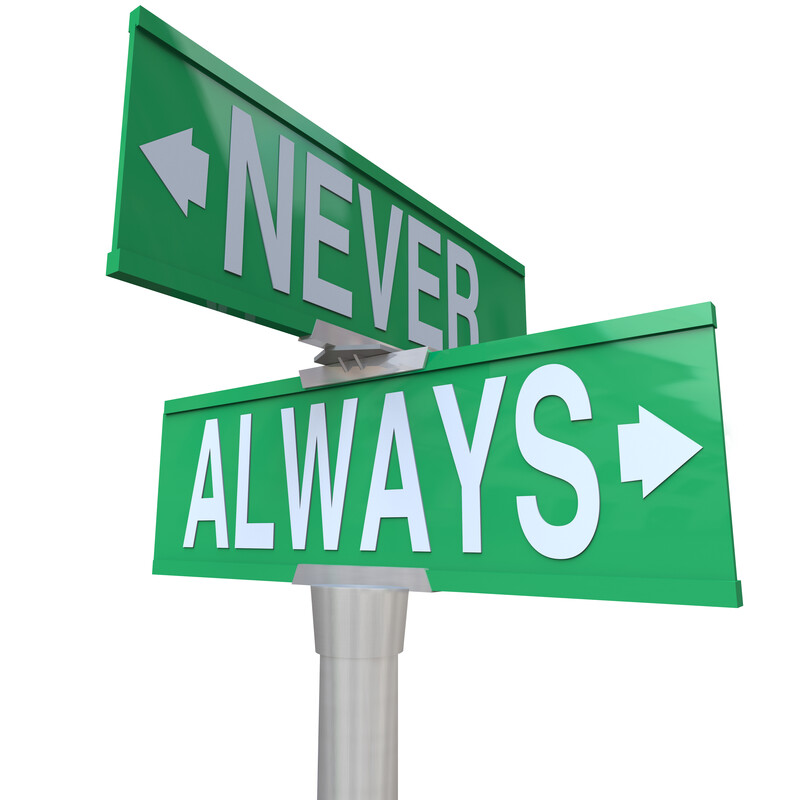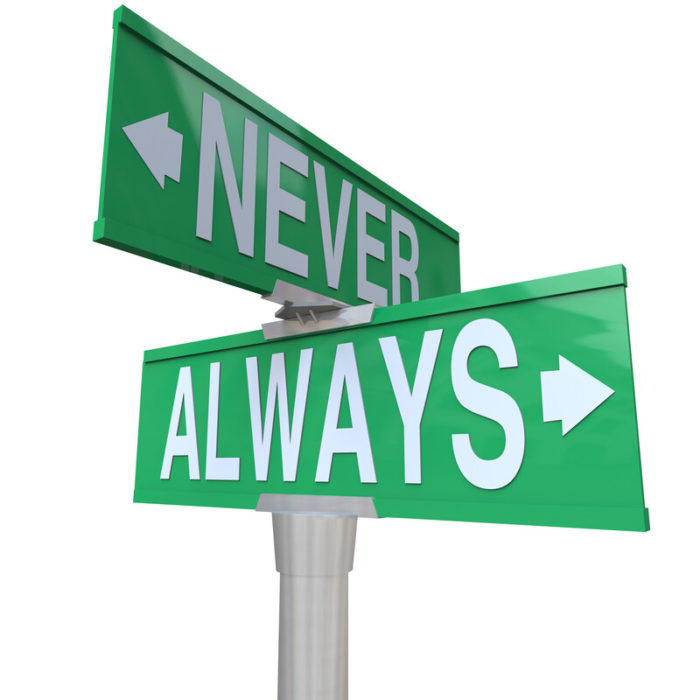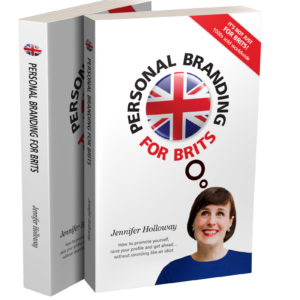

Always Avoid Always And Never Say Never
“I always deliver.”
That’s what the young man on one of my workshops said when I asked him what his biggest strength was.
“What, always?” I asked.
“Well, no, I mean I always deliver when I can, but sometimes it’s not possible because of external factors.”
“So, you tell people you always deliver, which would lead them to think you deliver in every instance, but then sometimes you don’t deliver.”
“Yeah, but that’s not my fault.”
I understood what he was saying. However, he was selling a benefit of his personal brand and not following through on it – in so much as he wasn’t getting the 100% delivery rate suggested by his use of the word ‘always’.
Trusted brands do what they say they’ll do
‘Always’ is just one of the words that should be carefully weighed up before being used as part of your personal brand – the other being ‘never’.
Because unless you can see into the future with absolute certainty and know that what you’re purporting to ‘always’ or ‘never’ do will always or never be done, you could inadvertently lose the trust of those who bought into your personal brand.
Which isn’t to say you can’t still sell that aspect as a major benefit – you just need to expand on it to give yourself some wiggle room.
Here’s what I’m talking about…
There are two ways you can avoid holding yourself hostage to ‘always’ or ‘never’:
- Say ‘always’ or ‘never’ but add a small caveat
- Change the wording entirely
So instead of saying ‘I always deliver’ the young man might say ‘I always deliver when it’s in my power to do so’ (the second part of the statement being the caveat). And using the second option: ‘I do my utmost to deliver at all times’ (avoiding holding himself hostage with the word ‘always’).
Or instead of someone saying ‘I never let my customers down’ – suggesting their every need is catered for – they might say ‘I never leave my customers in the dark’ (the caveat being they’ll tell the customer if they can’t meet their needs). Alternatively, they could word it as ‘I make my customers’ needs my priority’.
It’s the same for all brands
It’s not just personal brands my advice applies to.
To use an example of a company brand, until recently John Lewis said it was ‘never knowingly undersold’. The ‘knowingly’ added the wiggle room that enabled it to stick by its word, resulting in it being one of the most trusted UK brands year after year in KPMG Nunwood’s customer experience survey.
However, in February this year John Lewis announced it was retiring the well-known slogan because its price promise did not apply to online-only retailers and shoppers were increasingly buying online.
It was ‘knowingly’ being undersold and so felt it could no longer stand by its pledge with the same confidence. Instead, it replaced it with a statement it can stand by, now saying: The brand you can trust for quality and value.
I titled this post ‘Always Avoid Always And Never Say Never’ more as a warning than a rule. If you know with certainty that you can stand by your ‘always’ or ‘never’ then go ahead and use it. But if you’re not entirely sure, think about adding that wiggle room that will keep your reputation intact.







Leave a Reply